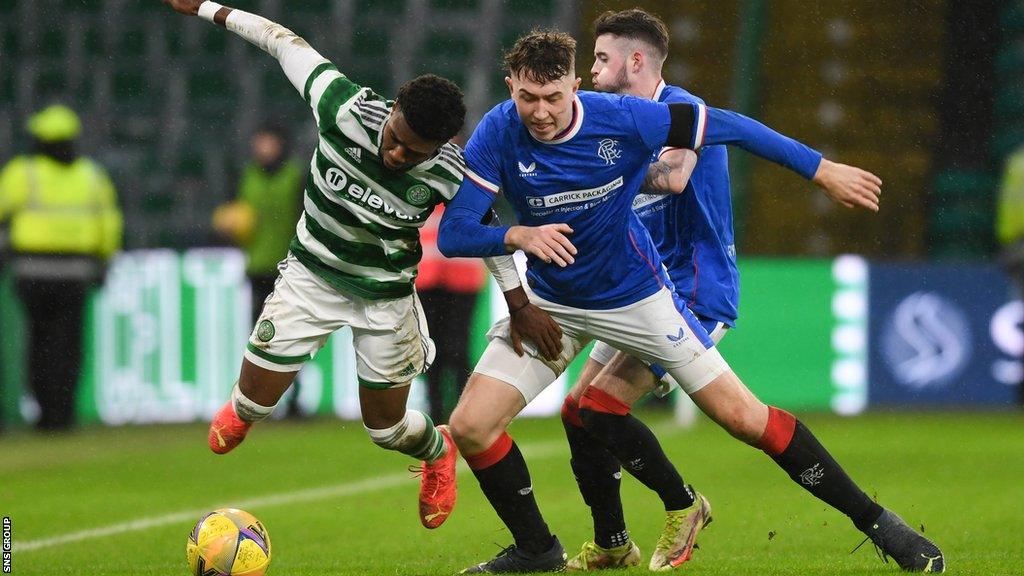New fifth-tier vote dropped to avoid 'divisive split', Scottish FA's Ian Maxwell reveals
- Published

Celtic and Rangers currently field B teams in the Lowland League, along with Hearts
A controversial vote to introduce a new fifth-tier league was dropped to avoid a damaging "split", Scottish FA chief executive Ian Maxwell has explained.
The proposed 10-team Conference League was for up to four top-flight B teams competing alongside Lowland and Highland League clubs in 2024-25.
But, with fans and a number of clubs in opposition, there was no vote taken at the SFA's annual meeting on Tuesday.
"We wanted it to be overwhelmingly supported," Maxwell told BBC Scotland.
"From a board perspective, we didn't want to get this through on a 51-49. We need to reflect on what's happened and understand the best way to take that forward and make sure that the next proposal that comes is supported overwhelmingly across the game."
At present, B teams from Celtic, Heart of Midlothian and Rangers compete in the Lowland League without being able to win promotion or suffer relegation.
The new Conference League, proposed by the pyramid working group, would have been positioned between League 2 and the Highland and Lowland Leagues.
However, Premiership clubs Aberdeen, Livingston and St Mirren denounced the idea along with a growing number from the leagues below ahead of the annual meeting.
Aberdeen said the estimated £400,000 cost of running a B team meant they would not consider joining the new set-up, while clubs below League 2 pointed out that they would all effectively suffer a relegation unless they were included in the Conference League.
Maxwell pointed out that the proposal had stemmed from a previous review that suggested the inclusion of B teams from Aberdeen, Hearts, Hibernian, Dundee, Dundee United was a priority.
The SFA had become involved because there is "a blockage" of "progress" for players aged 19 to 21 that was detrimental to the provision of talent good enough for the national team.
Maxwell admitted it was a "puzzle" and a "challenge" because "there's not a one-size fits all" solution that suits all clubs at different levels.
"Obviously the supports have been very forthright on their opinions on it," he said. "There was always going to be clubs that had a different view.
"Rather than have a divisive vote, which could split the pyramid, split the constituent parts of that, we want to try and keep things together and push forward as a collective and this gives us the opportunity to do that.
"We need to assess the reason why we think we got to where we did because nobody wants this to happen again."